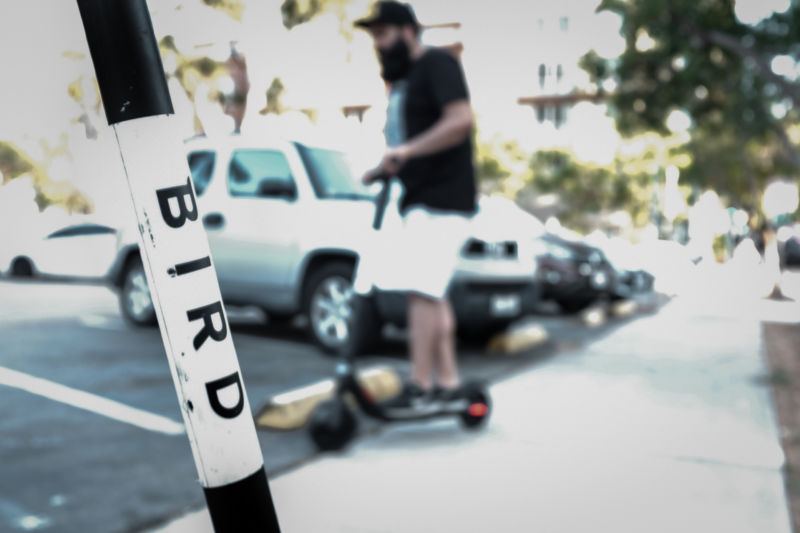Bird, Lime sued by disability rights activists who claim obstructed sidewalks | Ars Technica
Stay classy —
Lawsuit: Stray scooters "have… caused Plaintiffs to use the sidewalks less often."
Cyrus Farivar - Jan 22, 2019 12:36 pm UTC
 Enlarge /
Enlarge /
BIRD Scooters are now available throughout Southern California and have become increasingly popular in San Diego.
John Fredricks/NurPhoto via Getty Images
A disability rights group has
suedthe City of San Diego and three companies—including e-scooter startups Bird and Lime—over alleged violations of the landmark Americans with Disabilities Act and other related state laws.
The new proposed class-action lawsuit, Montoya et al v. City of San Diego et al, claims that the city has been derelict in its duty to keep city sidewalks, ramps, crosswalks, and curbs free of errant scooters, which in many cases can be significant hazards to people with physical disabilities.
Similarly, the lawsuit claims that these companies are creating these hazards in the first place by creating geo-fencing within the services and have chosen not to attempt to solve this problem.
"Scooter Defendants hinder and inhibit Plaintiffs from using the system of sidewalks, crosswalks, transit stops, curb ramps, pedestrian crossings and other walkways, and have actually caused Plaintiffs to use the sidewalks less often," the civil complaint, which was filed on January 9 in federal court in San Diego, explains.
The lawsuit seeks an injunction that would ban scooters from being operated or parked on San Diego’s sidewalks, curbs, transit stops, and other walkways.
"Our office will review the complaint and respond through the courts," Hilary Nemchik, a spokeswoman for the city attorney’s office, told Ars.
Both Lime and Bird operate on essentially the same business model: download the app, pay $1 to start a scooter rental, and then pay $0.15-$0.20 per minute after that. Companies make users swear that they will abide by numerous policies, such as being over 18, wearing helmets, only riding in bike lanes, and not blocking public pathways. But such rules are routinely flouted.
Neither startup would answer Ars’ questions. Lime noted that it was "committed to keeping our communities safe for everyone."
"While Lime does not comment on pending litigation, public safety has always been at the very core of everything we do at Lime," Mary Caroline Pruitt, a company spokeswoman, emailed.
A similar case is pending in Los Angeles County Superior Court, brought by other pedestrians who say that they were injured by scooters left strewn about.
In December 2018, the family of a Dallas man who died as a result of being injured on an allegedly defective Lime scooter sued Bird, Lime, and Segway.